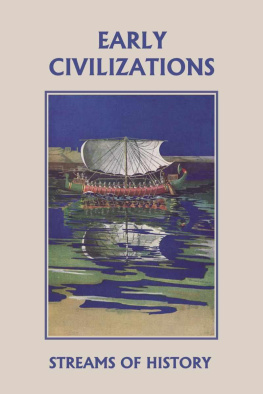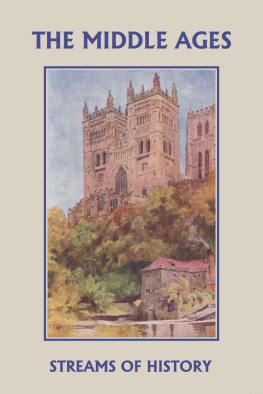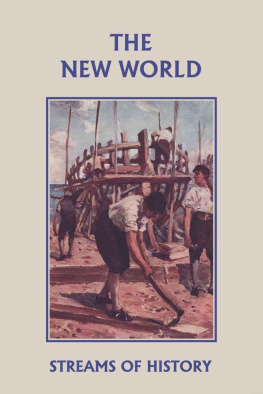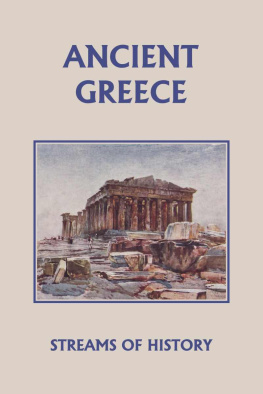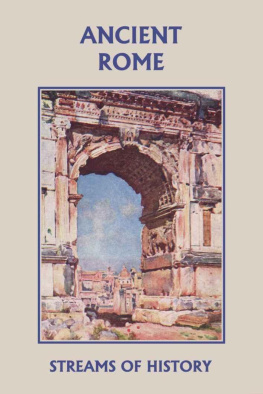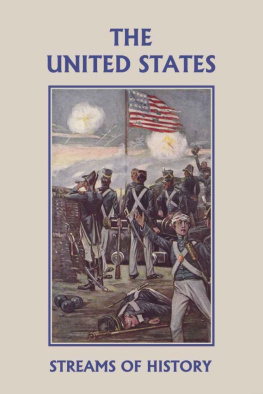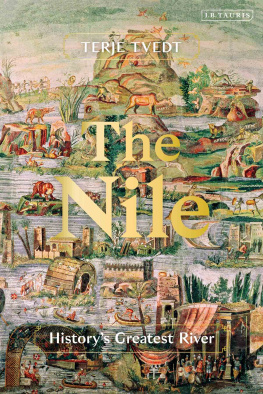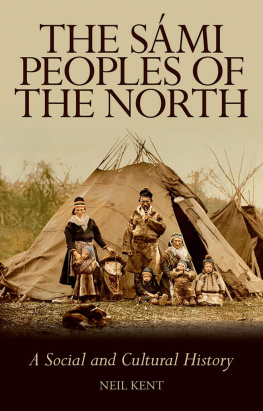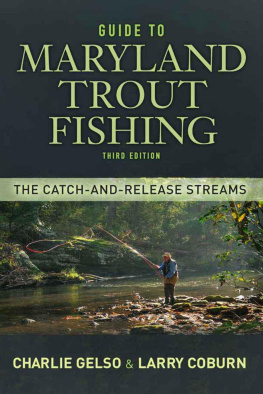Early Civilizations
by
Ellwood Wadsworth Kemp
Yesterday's Classics
Chapel Hill, North Carolina
Cover and Arrangement 2010 Yesterday's Classics, LLC
All rights reserved. No part of this book may be reproduced or retransmitted in any form or by any means without the written permission of the publisher.
This edition, first published in 2010 by Yesterday's Classics, an imprint of Yesterday's Classics, LLC, is an unabridged republication of the work originally published by Ginn and Company in 1902. This title is available in a print edition (ISBN 978-1-59915-254-7).
Yesterday's Classics, LLC
PO Box 3418
Chapel Hill, NC 27515
Yesterday's Classics
Yesterday's Classics republishes classic books for children from the golden age of children's literature, the era from 1880 to 1920. Many of our titles are offered in high-quality paperback editions, with text cast in modern easy-to-read type for today's readers. The illustrations from the original volumes are included except in those few cases where the quality of the original images is too low to make their reproduction feasible. Unless specified otherwise, color illustrations in the original volumes are rendered in black and white in our print editions.
Contents
Arya and His Seven Sons
A LTHOUGH we do not believe in riding on the backs of fairies, as people long ago did, and we have no magic wand to help us to get to far-away lands and far-away times when old people and young, too, played and acted in many ways much like children, yet our imagination will take us to the land of Long Ago, where we may see our forefathersthe Aryansas they lived their simple, daily lives; and there for a time we will live and work and play and struggle with them. Perhaps thus we may be able to feel something of what they have done for us in gaining a little control and understanding of nature, which to them seemed so savage, and which, as they thought, often grew angry with them and tried to hurt them; but which we now know never gets angry, but gives us the storm, the wind, the snow and the sunshine, that the world may be all the more beautiful and rich with fruit, and grain, and flower.
Now we are to imagine that we are really living in that far-off misty time. As far as the eye can see on all sides, stretches a beautiful grass-covered plain. Near us flows a broad, shallow river, with gentle murmur, southward. Its banks are concealed by graceful willow trees that grow even to the water's edge, while tall reeds grow far out into the river. We are able to trace the course of the river far into the distance, both north and south, by the shining silver birch trees which rise one by one among the willows. These willows and birches, so close to the river, are the only trees in sight. The sun is low in the west. The hush of solitude is all around, except that afar off we hear the mournful cooing of a solitary dove.
Suddenly from out the west come lowing cattle toward the stream. Now all of them disappear down one of the narrow and deep gullies that cut the plain, but which make no apparent break in the level expanse of grass as one looks over the vast prairie. Up they come again, making straight for the river. We watch them as they push their way through the willows and reeds and take deep draughts from the quiet stream.
So intent have we been on the cattle that we are startled to see near us on the bank a wild-looking man, who has been tending and following the herd. He is tall, straight and strong, with bold, fearless eyes, broad chest and sinewy arms. His skin is fair. His light-brown hair falls in tangled masses to his shoulders; his clothing consists mainly of a cow's hide thrown over the shoulders and gathered in at the waist by a girdle. Shoes, also made of hide, protect his feet. By his side stands a huge bull dog, attentively watching the cattle. The herdsman, trusting his cattle for the moment to his faithful dog, turns slowly to the west.
The great sun god is bestowing his parting blessing on the earth; his beams of light extend like a gentle hand over stream and grassy plain. Peace rests over all. The all-embracing Sky-father bends his protecting arch of blue over all his children. The power, peace and beauty of the scene strangely stir the feelings of this child of nature, and his heart goes up in mute thanksgiving and prayer to these, his gods. While he stands thus, the dove we heard in the distance gives its mournful coo close at hand. He grows pale as he listens, and his superstitious anxiety increases as the bird flies just in front of him; for to them the dove is a bird of ill omen, and he believes that when one flies across his path it is sure to bring him bad luck. At this moment the sun, as if in answer to his prayer and in comforting assurance of his protection, throws across the western sky a glorious band of light.
The sturdy herdsman, seeing in this the smiling face of his great sun god, turns away comforted, feeling that surely the gods of light and strength are stronger than those of evil. He gives a loud call to the cattle, the great knowing dog walks intelligently toward them, and they come slowly and reluctantly from the water. He drives them to a part of the plain where the grass is very long and green and leaves them there in charge of the faithful dog.
He then makes his way homeward. Homeward? Yes. But there is no house that we can see as we follow him,only a number of rude wagons placed end to end so as to form a large circle, in the center of which are the glowing embers from a great open bonfire. Men, women and children, dressed much like the herdsman, in shaggy skins of animals, come and go in their work, dressing skins, carrying wood for the fire, carrying water, milking, crushing wheat, or sit on the ground idly talking or watching. Supper is being prepared. The air is laden with odor of roast beef. Circling around the fire are great pieces of beef, roasting on the ends of sticks which have been driven slantwise into the ground. Occasionally flames rise from the embers or the burning logs and burn the meat. A gray-headed man, dressed in better clothing than the others and giving orders with an air of authority, is waited on submissively by any who happen to come near, as if he were the ruler or chief. Indeed he is. He is known as the "house master," and his word is absolute law to every one in this great family or household, which numbers over sixty people. Near him, at his right, is a fine, brave-looking man, his oldest son, who will succeed him as housemaster. And by his side is his youngest son, a boy about ten years old, the strongest, brightest and bravest little fellow in the whole camp. This is Arya.
Arya is watching his mother prepare the meal for his father, and he smacks his lips as she sprinkles some dirty coarse salt over it; for salt is so scarce and they know so little how to make it, that it is the greatest luxury and is eaten only by the few honored ones of the family. The mother tells her boy of the dangers the father underwent when he traded some fine cattle for a small skin of salt, and how it had almost cost him his life because of the treachery of one of the traders. Then the mother takes out from under some hot ashes, another luxury, which only the chief and his sons can afford,a hard wheaten cake. It is unleavened and unsalted, and made simply by baking the dough made from roughly crushed wheat mixed with water. These early people have not yet learned to cultivate the land, and wild grain is very scarce. When the meal is prepared, the family does not sit down to a table with a snowy cloth and pretty dishes, as we at home do, nor do they begin the meal with quiet manners or thanks to their gods. The men roughly help themselves as soon as they think the meat sufficiently roasted. They bite off great mouthfuls which they swallow with little chewing. The women and children look on while the men gorge themselves. Arya looks so wistful that his father cuts off smaller pieces with a huge knife of stone and gives to him and his three little brothers. The mother and sister get no meat at all. The boys snatch their chunks and gnaw on them savagely much like the men. Though the outside is browned and even burned, the inside is still a bright red and almost raw. But that does not matter. Indeed, when wood and reeds are scarce or water-soaked, all eat their meat raw. The women who have been milking bring milk in large jars and leathern bottles. The men raise these to their mouths and drink deep. They drink and eat great quantities of food, crack the bones after gnawing the flesh from them, suck the marrow out as the choicest morsel of meat and gorge themselves until they can eat no more. The women and children must eat the scraps that are left.

